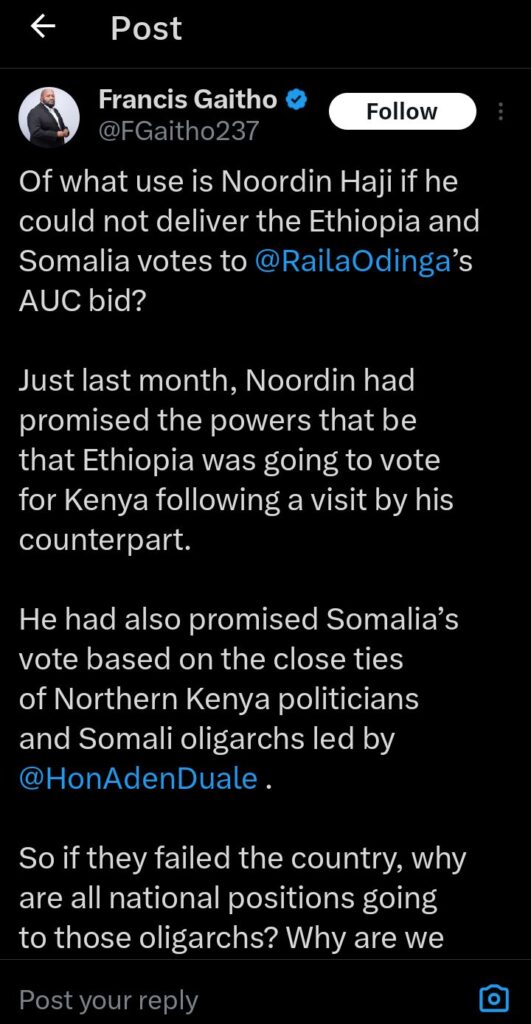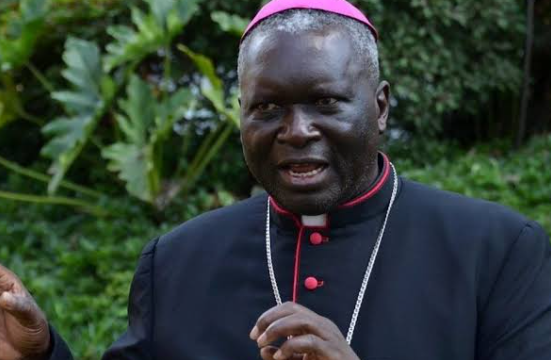Francis Gaitho has recently raised important questions about Noordin Haji’s loyalties and effectiveness, especially after Somalia and Ethiopia voted against Kenya in the African Union Commission (AUC) race. Gaitho’s concerns stem from the fact that Noordin Haji, who holds a position in Kenya’s government, had previously assured the nation that Ethiopia and Somalia would support Kenya’s bid for the AUC chairperson position, which was being pursued by Raila Odinga.
However, when the voting took place, both countries went against Kenya, leaving many to wonder what went wrong and whether Haji’s promises were ever realistic.
Just last month, Noordin Haji had confidently stated that Ethiopia would vote in favor of Kenya following a visit by his counterpart. He had also assured that Somalia would support Kenya’s bid, citing the close ties between Northern Kenya politicians and Somali oligarchs, including figures like Aden Duale.
These assurances gave many Kenyans hope that the country’s bid for the AUC position would be successful. However, the outcome of the vote has left many questioning Haji’s influence and ability to deliver on such critical diplomatic promises.
Gaitho’s concerns are not just about the failed bid but also about the broader implications of such failures on Kenya’s national interests.
Gaitho has gone further to question why national positions continue to be awarded to these oligarchs despite their failure to deliver on their promises.

He points out that Kenya seems to be bending laws and policies to favor these individuals, even at the expense of the country’s domestic production. For instance, he highlights how the sugar industry, which is crucial for many Kenyan farmers and workers, is being undermined to allow for the importation of cheaper sugar.

This, he argues, is a clear example of how the interests of a few powerful individuals are being prioritized over the well-being of the nation.
The questions raised by Gaitho are not just about Noordin Haji but also about the system that allows such failures to go unchecked. If individuals in positions of power cannot deliver on their promises, why are they still entrusted with such critical roles? Gaitho’s concerns resonate with many Kenyans who feel that the country’s leadership is increasingly out of touch with the needs of its people.
The failure to secure the AUC position is just one example of how Kenya’s diplomatic efforts are being undermined by internal inefficiencies and misplaced loyalties.
The failure to secure the support of Ethiopia and Somalia in the AUC race is a clear indication that something is not okay.

Gaitho’s concerns about the influence of oligarchs and the bending of laws to favor their interests further highlight the need for accountability and transparency in Kenya’s governance. If these issues are not addressed, the country risks losing not just its position on the continental stage but also the trust of its citizens.












Leave feedback about this